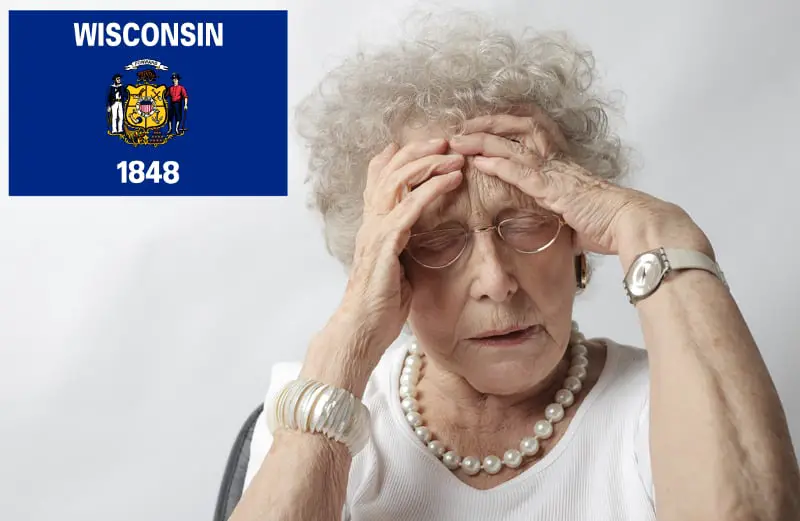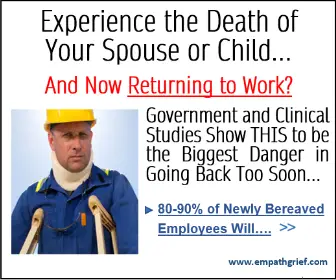When a death occurs money is the last thing that people want to think about. But when a friend or loved one dies, family and friends might be contacted by those looking to collect money that the deceased might have owed them.
But who is responsible for medical bills after death in Wisconsin?
In Wisconsin, generally, the deceased’s spouse is liable for the medical bills and all other debts that the deceased has left behind because Wisconsin is a community property state. Most of the debt incurred during the marriage is considered a marital obligation and the spouse is liable to pay it.
The creditors or debt collectors may be coming around and trying to get a payment from you. They will be seeking payment on the deceased’s debts.
This is a complicated situation and the laws in Wisconsin are not always the easiest to understand. By reading on it will help you in this trying time on who is responsible and who is not for paying the debts of the deceased.

Get help
As I am not your lawyer, this is not legal advice but more guidance. If you do not understand something or you need more help, it would be best to seek legal help.
There are many great lawyers in Wisconsin that would be happy to help you solve this issue or give legal advice, you can go to this website to search for a lawyer in your area.
Legal Jargon
Sometimes the words and phrases in legal writing can be a bit confusing and dealing with laws in Wisconsin is no different. Here are a few terms and phrases to help guide you through the legal writing.
- Assets- Money, or property that own.
- Community Property State- Community property states follow the rule that all assets and liabilities acquired during the marriage are considered “community property.” Arizona, California, Idaho, Louisiana, Nevada, New Mexico, Texas, Washington, and Wisconsin fall into this category.
- Decedent- A decedent is generally a person (male or female) who died and left debts behind. These debts could be money, bills (including medical) and/or property.
- Estate representative- An estate representative takes care of a deceased person’s estate. Your estate includes your assets and liabilities.
- Liabilities- What you owe someone or a company.
- Marriage Obligations– It is the fiduciary duty owed to a spouse if both are living or one as passed away. Marriage is defined as a confidential relationship and unless a pre-nuptial is signed there is a duty to act fair dealing in any transaction between the spouses.
- Pre-marital agreement- Also known as a pre-nuptial, it is a document signed before marriage that states who gets the deceased’s money or belongings. It also can state if the spouse is liable for their debts.
- Probate court– also known as surrogate court is a court set up to handle not only the matters of probate but the administration of one’s estates.
- Statute- is a formal written enactment of a legislative authority that governs the legal entities of a designated area. Statues are usually a policy or there to prohibit something. They are rules made from previous cases or precedents.
Is the spouse responsible for the medical bills of the decedent in Wisconsin?

In the state of Wisconsin, most debt (including medical bills) that happened during the marriage on behalf of the marriage or family is to be looked at as a marital obligation.
This means that most spouses are liable for the debts of their decedents, even if they have died. These laws are not always straight forward and there is a lot of grey areas. Such as proof that the medical procedures were just necessary.
You should first check to see the contracts, bills, and details of what your deceased spouse had signed off on or agreed to with the creditor.
Making sure that you get all things in writing and after you have gone over it confer with a lawyer. You want to have a lawyer that specializes in this area, not just for spousal liability but also in medical bills.
Since Wisconsin is a community property state, spouses aren’t responsible for debts that predate the marriage. Though half of any community property from a marriage could be used to pay the medical bills in some circumstances.
The two main statutes in the law that regard the spouse in Wisconsin are below. If you want to read all of them go to this site to get the full list of the statues, laws, and information regarding who is liable for the debts of the decedent.
It is a lot of information and it can be confusing, so set aside some time and try to have a legal professional or someones else around to help you.
Wis. Stat. § 766.55 – Obligation of spouses
(8) After the death of a spouse, property is available for satisfaction of obligations as provided in § 859.18
Wis. Stat. § 859.18 – Satisfaction of obligations at death of a spouse
Can the family or friends be held responsible for the medical bills in Wisconsin?

This may seem like it is far-fetched but sometimes debtors and creditors will call or visit the residence of the decedent or their family’s residence.
If they had roommates or friends that lived there they may ask for a payment. They may even go to the decedent’s family home and ask for the payment, but as long as they do not misrepresent themselves and or say you must pay the bills, they can ask.
This is a very uncouth practice and frowned upon, but not illegal in the state of Wisconsin. So unless you are the spouse or co-signed a contract with the decedent you are not legally obligated to pay for anything, including the medical bills.
This also means that if you received the life insurance benefits from the death of the decedent, you are still not liable.
Since the proceeds from the life insurance policy were never actually owned or held by the decedent. So all the money or benefits are yours but be sure to check the tax implications on collecting these from a professional.
If you are learning the lessons of not having life insurance and leaving your loved ones with enough money to cover your final expenses, then see my recommended life insurance brokers for the cover you REALLY need.
What about the estate representative?
Again the creditors and debt collectors can and will probably try to contact you if you are the representative of a formal estate and have outstanding debts from medical bills or anything else.
This again falls into the grey area and would need further clarification if you do not know if you have to pay it or not. As the estate representative contact the probate attorney for clarification on the matter.
They may just be sending the letters to you to scare you into paying and have no legal authority to actually collect from you.
Others may also be sending these letters to family members and the letters will say addressed to The Estate of the decedent. Since you are not the representative you legally do not have to reply but if there is an actual representative give the letter to them.
Don’t be intimidated

Even if you are not an estate the estate representative, spouse, or co-signor of the medical debt these people may still contact you.
You have to remember that outstanding medical bills are big money and America has the highest fees for medical procedures in the world. With this type of money, they want to see if they can collect any of it. Hospitals may even try to settle at a lower rate to recoup any of the money.
After hospitals or doctors’ offices try to collect on their own for some time, the hospitals and doctors’ offices will probably sell their debt to debt buyers. These debt buyers pay pennies for each dollar owed. They then try their best in often unsavory ways to collect anything from people as long as it is more than they paid.
Take Legal Action
If you feel that you are being unfairly harassed Wisconsin has a fair debt collection practices act that protects people from these types of practices.
Remember that if you are not the spouse, co-signor, estate representative or otherwise liable for the debt, they should not be contacting you about the decedent’s medical bills.
This may seem harmless but if not taken care of they will keep harassing you and others, possibly tricking someone into paying by false claims or pressure. You are a third party, under Wisconsin’s consumer rights laws, cannot be notified about a decedent’s debts.
If this keeps up and a debt collector or agency keeps failing to comply with consumer laws, you should look at legal action, you can look for a lawyer at the website above, google “Consumer Law Attorneys in your local area” or call the State Bar Lawyer Referral and Information Service at (800) 362-9082. When you are doing this try to find a lawyer that will do free consultations as they can be pricey.
For more information on the law that classifies what harassment is and finding more information on your right go to this link.





